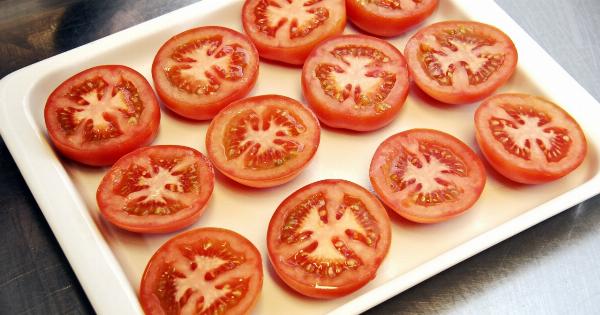Sugar is one of the most commonly consumed ingredients in our daily diet. Not only does it enhance the sweetness of our foods and beverages, but it also provides a quick burst of energy.
However, the downside of consuming too much sugar is often overlooked. While sugar is an essential part of everyone’s diet, excessive consumption can lead to various health issues such as obesity, diabetes, and even heart disease.
What is Sucrose?
Sucrose, commonly known as table sugar, is a type of carbohydrate that is extracted from sugarcane or sugar beets. It is the most popular type of sugar used in most foods and beverages.
Sucrose is composed of glucose and fructose molecules that are chemically bonded to form a crystal-like compound.
The Dietary Guidelines for Americans
According to the Dietary Guidelines for Americans, the intake of added sugars should not exceed more than 10% of the total daily calories. For instance, the daily recommended intake of calories for an average adult is 2000 calories.
This means that the maximum recommended amount of added sugars that adults should consume is no more than 200 calories per day, which is equal to 50 grams or 12 teaspoons of sugar.
The Hidden Sugars in our Foods
Sugar is not only found in obvious foods and beverages such as cakes, cookies, and sodas. It is also commonly added to other foods such as yogurts, cereals, ketchup, bread, and even some types of baby formula milk.
All of these seemingly healthy foods can contain added sugars that can quickly add up, leading to excessive sugar intake.
Checking the Labels
It is important to carefully check the nutrition labels when purchasing foods and beverages. Added sugars can be labeled under various names such as cane sugar, corn syrup, dextrose, glucose, and fructose.
Manufacturers are required to list their ingredients in order of quantity, however, added sugars can still be hidden under the names of natural sweeteners such as honey and maple syrup.
The Effects of Excessive Sugar Intake
Consuming too much sugar can have negative impacts on our health. Excessive sugar intake can lead to weight gain, obesity, diabetes, and heart disease.
It is also noted that consuming too many sugary foods and beverages can increase the risk of tooth decay and gum disease.
How to Reduce Sugar Intake
Reducing the intake of added sugars can be challenging, especially for those who have a sweet tooth. However, there are simple ways to reduce sugar intake.
One way is to reduce the consumption of sugary beverages such as soda, energy drinks, and fruit juices. Consuming water or unsweetened drinks instead can greatly reduce overall sugar intake. Additionally, instead of consuming sweet snacks such as candy bars, try to opt for healthier options such as fruits or nuts.
The Bottom Line
Sugar is a staple in most diets, and while it enhances the taste of our foods, it is important to consume it in moderation. Always read the nutrition labels carefully, and try to reduce the consumption of sugary beverages and snacks.
By making simple changes, we can greatly reduce the effects of sugar on our health and well-being.






























